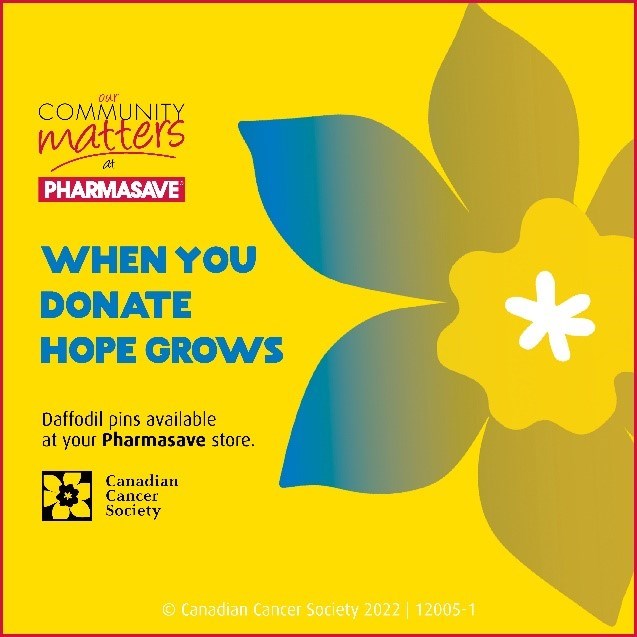
Laurie-Ell Bashforth | Special to the 51°µÍø
The ordeal of cancer can’t be measured. It leaves its mark in the bones of our soul.
In April though, the Canadian Cancer Society invites us to turn our attention to the lives and strength of patients and survivors.
To not turn away from the visible hold of the disease but rather see past it into the heart of those with it, and those walking the path alongside them.
It’s no accidental happening that the Daffodil Campaign occurs during the month of April.
Spring has sprung. Birds are heard more, bears begin foraging, tulips, crocuses and, yes, daffodils peek through the snow.
The earth awakes from the tomb of winter. The season’s attention on life helps remind us that life is bigger than cancer.
If you are an individual dealing with cancer though, you may or may not know that cancer treatment can affect your oral health, even if you are not being treated specifically for the mouth.
Radiation therapy to the neck and head area and chemotherapy help treat cancer, but they can also cause side effects affecting the mouth.
Many people undergoing cancer treatment don't realize that a dental check-up is important in maintaining your overall health.
How does cancer treatment affect oral health?
Cancer treatment includes chemotherapy (treating cancer with medications) and radiation therapy (treating cancer by using energy such as X-rays and gamma rays).
These treatments kill cancer cells, but they can also have an effect on normal cells in the body, including those in the mouth.
When this happens, side effects from cancer treatment that affect the mouth may occur, including:
- mouth infection
- mouth sores
- pain in mouth and gums
- dry mouth
- burning, peeling, or swollen tongue
- change in taste
- difficulty eating, swallowing and talking
- bleeding (for chemotherapy)
- cavities and jaw stiffness (for radiation therapy)
What can I do to maintain good oral health during cancer treatment?
There are several steps you can take to ensure good health while you undergo cancer treatment:
- If possible, visit your dentist one month before you start your cancer treatment. Mouth problems from cancer treatment may occur because a person's oral health is not ideal. Going beforehand may help prevent some mouth problems.
- Brush your teeth at least twice a day and after every meal with an extra-soft toothbrush. You should also gently brush your tongue and gums. Use a fluoride toothpaste.
- Gently floss your teeth every day.
- Your dentist may also recommend a mouth rinse. Follow the instructions provided by your dentist. Avoid mouth rinses that contain alcohol, which can dry the mouth.
- If you experience dry mouth as a side effect of cancer treatment, your dentist may recommend a saliva substitute. Follow the directions provided by the dentist. You can also keep your mouth moist by drinking lots of water, chewing sugarless gum, or sucking ice chips.
- Avoid foods that can irritate or hurt your mouth: Sharp or crunchy food (e.g., potato chips), spicy dishes, or high-acid food (e.g., citrus fruits and juices). Also avoid using toothpicks, which can cut your mouth.
- Avoid sugary foods, which can cause cavities.
- Call your dentist or doctor if your mouth hurts.
Help hope bloom this season and spread the word.
Donations can be made at cancer.ca or at Pharmasave by purchasing a Daffodil pin.
Your donation goes toward support services, vital research and advocacy.
Have more questions? Ask Merv, your Pharmasave pharmacist. By the way, did you know we’re moving a few doors down? Stay tuned and watch our progress on Facebook at Pharmasave Jasper!



